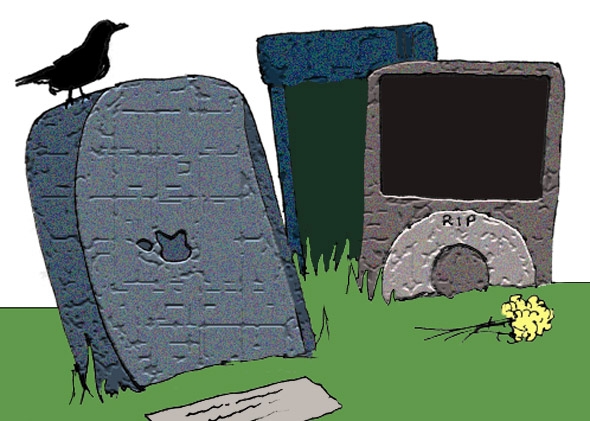The Apple Graveyard
Leave a flower for a dead Apple product.

Illustration by Ellie Skrzat.
Even the most “incredible” or “powerful” or “beautiful” device “ever” will someday go into the trash. The discontinuation of the iPod Classic is a reminder: It doesn’t matter how many oohs and ahhs an Apple product earns onstage or how long the lines are at its launch or how many thousands of dollars impatient rich people dole out for it on eBay. Like a common can of tuna, it has a shelf life, and will someday be worth nothing. But even after its functional death, an old gizmo can still stir something within us. Perhaps it’s nostalgia for a time when phones were smaller and watches were watches.
Before introducing the second version of Mac OS X in 2002, Steve Jobs conducted a funeral for OS 9. Today, we go a step further: We’ve built a permanent place for us to remember the most widely known Apple products of the past. Some succeeded, others flopped, but they all touched us in some way, and we touched them. That’s how they worked. Click on a grave to leave a flower and let the healing process begin. We don’t include every individual product here (that’s a long list), but let us know in the comments a product you’d like to see, and we’ll consider adding a gravestone for it.
Graveyard iBots clear out withered flowers regularly; only the last 3,000 flowers cast are shown.
This article is part of Future Tense, a collaboration among Arizona State University, New America, and Slate. Future Tense explores the ways emerging technologies affect society, policy, and culture. To read more, visit the Future Tense blog and the Future Tense home page. You can also follow us on Twitter.